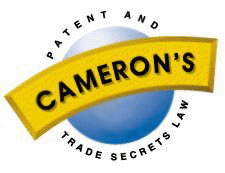
Unilever PLC v.
Procter & Gamble Inc.
citation(s): (1993), 47 C.P.R. (3d) 479 (F.C.T.D. per Muldoon J.),
 |
Unilever PLC v.
|
copyright 1997 Donald M. Cameron, Aird & Berlis
"Given the mind-boggling volume of documentary evidence, conflicting scientific and other testimony, and written and oral argument, it is admittedly difficult for this judge now to sort out the evidence, especially the chemistry which was all new to the judge upon reading over the file prior to the opening of the trial in Toronto. Expert witnesses - called because, one supposes, of their eminence in the chemical science in which they proudly purport to be expert - are a large hindrance rather than much help because, of course, they are paid to contradict the eminent scientists on the opposite side. They remind one of another ancient profession, (law, or soldiery) rather than learned experts of technical precision seeking to find and to explain scientific verities.
When one considers the apparent silliness of trial by a judge who is utterly unschooled in the scientific substance of a patent, hearing conflicting testimony of so-called experts who speak the antithesis of scientific verity, and lawyers who have been engaged in the particular case for years before the trial, one knows that this field cries out for reform. It wastes the scarce resources of the Court, which is not configured for getting at the truth of arcane scientific contradictions. A judge unschooled in the arcane subject is at difficulty to know which of the disparate, solemnly mouthed and hotly contended "scientific verities" is, or are, plausible. Is the eminent scientific expert with the shifty eyes and poor demeanour the one whose "scientific verities" are not credible? Cross-examination is said to be the great engine for getting at the truth, but when the unschooled judge cannot perceive the truth, if he or she ever hears it, among all the chemical or other scientific baffle-gab, is it not a solemn exercise in silliness? Reform is much needed in the field of non-mechanical patents' litigation.
According to the wisdom of ancient adage, "It is better to light a candle, than to curse the darkness." This judge has surely indulged in his share of the latter, but he has also attempted to light a candle: (1992) 9 C.I.P.R. (No. 1, Sept. p. 25). It is most frequently very difficult to institute reforms."
Return to:
Cameron's IT Law: Home Page; Index
Cameron's Canadian Patent & Trade Secrets Law: Home Page; Index